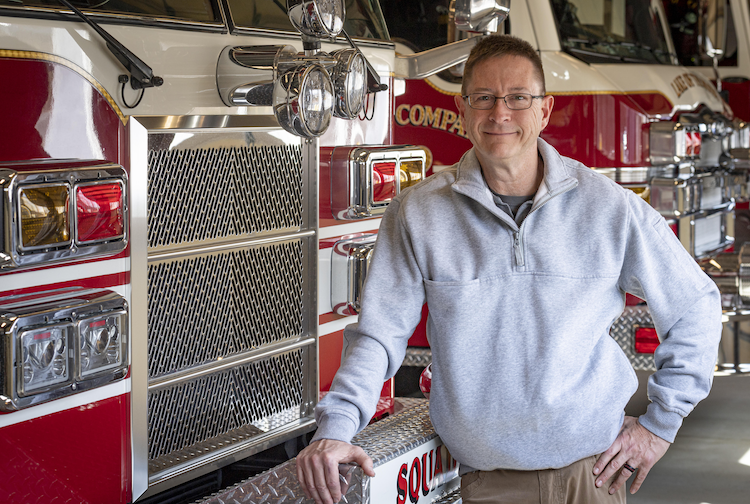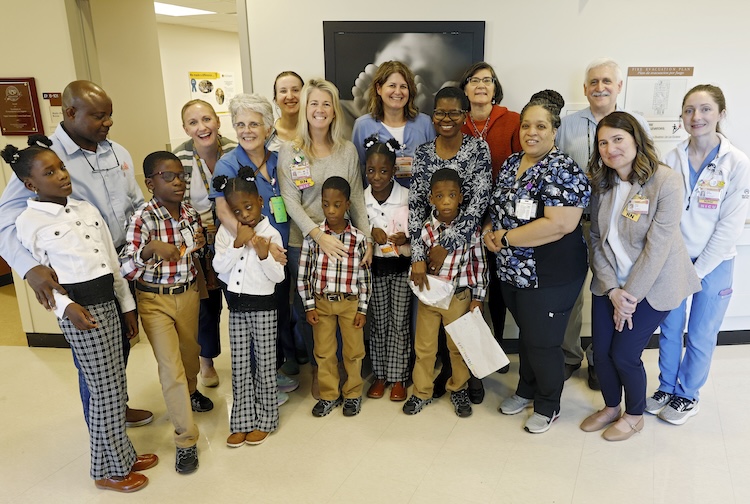Running with purpose: Meet the heart health champion who won’t slow down
The care that Desiree Tunnell received at VCU Health Pauley Heart Center encouraged her to advocate for women living with heart disease.
July 09, 2025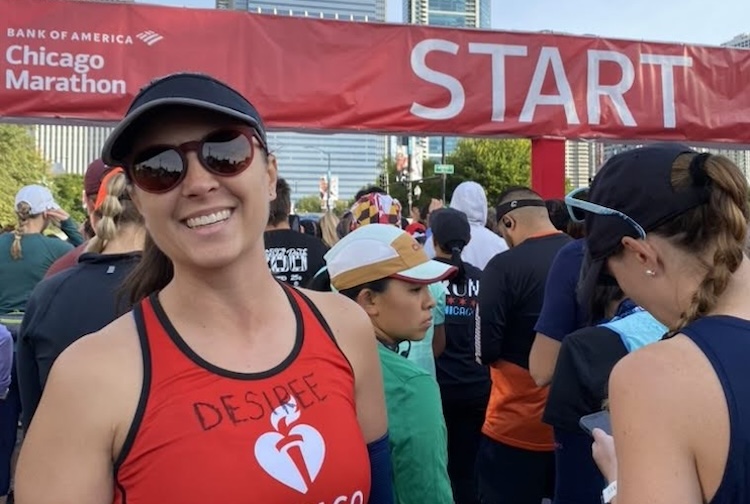 Desiree Tunnell ran in the Chicago Marathon 18 months after having surgery for a congenital heart defect at VCU Health Pauley Heart Center. She raced to raise funds from the American Heart Association. (Contributed photo)
Desiree Tunnell ran in the Chicago Marathon 18 months after having surgery for a congenital heart defect at VCU Health Pauley Heart Center. She raced to raise funds from the American Heart Association. (Contributed photo)
By Tanner Lambson
At her first appointment with Vigneshwar Kasriajan, MD, a cardiothoracic surgeon at the VCU Health Pauley Heart Center, a proud grandmother brought a printout of an article about her granddaughter, Desiree Tunnell. Desiree was featured by the American Heart Association for her work to raise awareness about heart disease in women.
Turns out, Kasirajan was already well acquainted with Desiree – he was her heart surgeon.
Kasirajan repaired a leaking valve in Desiree’s heart in 2022. A long journey led Desiree to Kasirajan’s operating room – one that began with her concerning symptoms being dismissed by her initial cardiologist.
“Dr. Kasirajan saved the article my grandmother gave him,” Desiree recalled, “and when I went back for a follow-up appointment, he was training a new doctor and had [the trainee] read it. He said, ‘This is the patient I was telling you about – so listen when women speak.’”
“If my journey helps just one woman insist on that extra test – an echo, or a second opinion – I've done something good,” Desiree continued.
A winding path to a diagnosis
Desiree is an avid runner, typically beginning her day with a three-to-six-mile run. But in 2019, Desiree began to experience shortness of breath during exercise that felt out of the ordinary.
“I thought it was just a bad week — or fatigue, or even the flu,” Desiree said.
A flu test came back negative, and then her primary care doctor detected something unexpected.
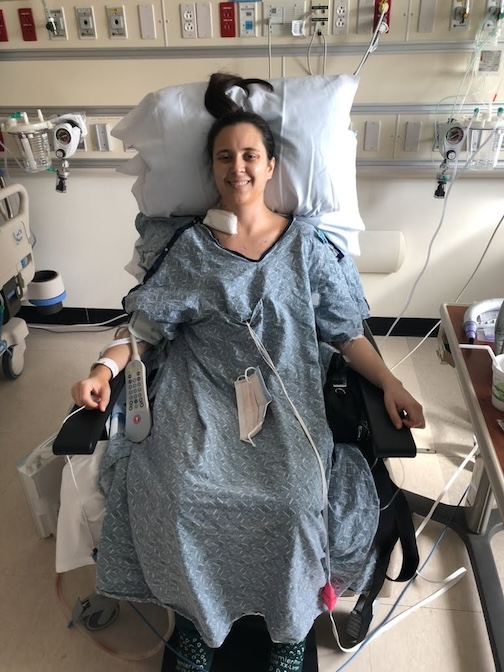 Desiree Tunnell had surgery to repair a leaking valve in her heart in 2022. (Contributed photo)
Desiree Tunnell had surgery to repair a leaking valve in her heart in 2022. (Contributed photo)
“My doctor said, ‘Why do I not remember that you have a murmur?’” Desiree recalled. “I said, ‘I don't have a murmur.’ And she told me, ‘No, I am definitely hearing something.’”
She was referred to a cardiologist, who brushed off her concerns.
“He told me I was exercising too much,” Desiree said. “He kept insisting I was fine, and that I should simply slow down.”
Frustrated, she decided she’d switch providers — but fate intervened when her doctor left the practice. She was assigned a new cardiologist, who ordered a transesophageal echo, a procedure in which the heart is imaged via a tube placed in the esophagus. This test revealed that one of her heart valves was prolapsing — allowing blood to leak back into her left atrium with every heartbeat.
What her first cardiologist initially dismissed turned out to be a congenital heart defect – severe mitral valve prolapse with regurgitation.
“I felt so vindicated,” she said. “I just knew something was wrong, and I needed these doctors to listen to me.”
Desiree needed surgery to repair her leaky valve. That’s when Kasirajan stepped in.
Using a minimally invasive technique he had helped to develop in 2009, Kasirajan accessed the mitral valve through a small incision under the right armpit (rather than cutting through the breastbone). High-definition cameras helped surgeons see inside the chest, allowing them to carefully adjust the valve’s leaflets — the flexible flaps that open and close — and reinforce its structure with a surgical ring (known as an annuloplasty) to prevent future leaks.
If my journey helps just one woman insist on that extra test – an echo, or a second opinion – I've done something good.
Desiree Tunnell, VCU Health patient
The procedure’s success rates exceed 98% — and what’s more, patients’ own valves are repaired rather than being replaced with mechanical valves that require patients to take lifelong blood thinners.
“Our goal is the same for every patient,” Kasirajan explained. “We restore the anatomy so the valve doesn’t leak, and we do it in a way that lets you get back to life quickly.”
The first steps toward healing
Desiree’s surgery went well, and she returned home after three nights in the hospital.
But those first three days weren’t easy. The recovery guidelines called for six to eight weeks of gradual activity. Desiree was used to running marathons.
“The very first day you wake up in the cardiac surgery ICU and they want you to walk,” she said, “I couldn’t even make it a full lap around the unit. Before release, they have you do real stairs—I thought it’d be a little stepladder!”
On day one, she labored through the hospital corridors; by week eight, she was taking small jogs on a treadmill in cardiac rehab.
“I ran a half marathon pre-surgery and recovered no problem,” she recalls. “But that first post-op week kicked my butt.”
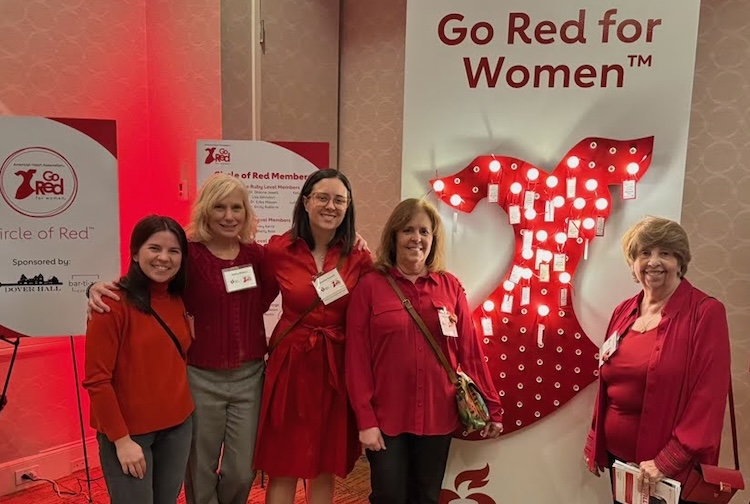
For her advocacy efforts, Desiree Tunnell (middle) was named the American Heart Association’s Go Red for Women Central Virginia Woman of Impact in the spring of 2024. (Contributed photo)
The Pauley Heart Center has created unique collaborations across different specialties to deliver cardiovascular care. Kasirajan says the fluid and effective teamwork between the center’s cardiothoracic surgery and cardiovascular medicine departments is what sets VCU Health apart from other heart hospitals in the region.
“The surgeon provides an important part of the care, but it's not the only piece, right?” he said. “There's a whole host of things that need to happen, beginning with the patient being seen by our cardiology colleagues in the outpatient clinic and getting the appropriate preoperative studies. In the operating room, we have expert anesthesiologists, perfusionists, nurses, techs, and then in the intensive care unit, there are critical care doctors, nurse practitioners, nurses, pharmacists, physical therapists to help our patients recover after heart surgery. Finally, there’s another outpatient process to get patients back to a full, functioning life.”
And Desiree can attest to being back at it after going through the whole process with Pauley Heart Center.
Six months after her surgery, she ran the Richmond 8K. At one year, she ran the Petersburg Half Marathon. After 18 months, Desiree stood at the starting line of the Chicago Marathon, this time racing to raise funds for the American Heart Association (AHA). Her pace has significantly improved over time, and today she no longer experiences the chronic fatigue and heart rate spikes that first brought her to the cardiologist.
“I have so much more energy for daily life now,” she said.
From patient to heart advocate
Desiree’s experience inspired her to pursue a deeper mission: ensuring young women know heart disease doesn’t only strike older men. After completing the Chicago Marathon, she continued her fundraising efforts for the AHA, and participated in community outreach initiatives designed to educate women about the prevalence of heart disease, which claims the lives of one in three women.
For her efforts, Desiree was named the AHA’s Go Red for Women Central Virginia Woman of Impact in the spring of 2024.
Indeed, friends and acquaintances began scheduling heart screenings after hearing about her experience. One friend, another runner, discovered an atrial septal defect; another raised the issue of palpitations her doctor had downplayed.
At the same time that Desiree was navigating her valve issues, her husband, Brad Bakken, was facing his own cardiac challenge: atrial fibrillation, or AFib. The reversal of his arrhythmia — and Desiree’s recovery — ignited his passion for heart health, too. Today, Brad is a certified clinical exercise physiologist at the Pauley Heart Center and is pursuing a PhD in rehabilitation and movement science in the Virginia Commonwealth University College of Health Professions’ Department of Kinesiology and Health Sciences under Pauley faculty member Justin Canada, PhD, RCEP.
“We both flipped our lives around,” Desiree says. “He went from dirt bike racing to construction to clinical researcher. I went from marathoner to patient to advocate. We never expected to be heart-health influencers — but it found us.”
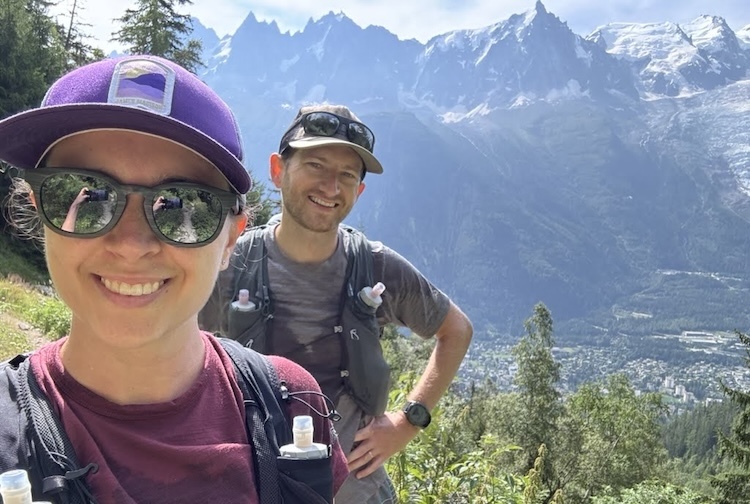
Desiree and her husband Brad were both diagnosed with different heart conditions around the same time. Both are patients at VCU Health Pauley Heart Center. (Contributed photo)
In her outreach work, Desiree always emphasizes the value of knowing your family’s medical history. Though her mitral valve prolapse was congenital, it wasn’t discovered until she was 28. It turns out her grandfather and his siblings had similar heart problems, but the information never made it to her.
Since Desiree’s diagnosis, her mother and brother have been checked by a cardiologist and they’re “all clear,” in part, thanks to Desiree’s tireless work.
“Talking about medical stuff with your family is so important,” she said. “If we share our stories, we can spot problems before they become emergencies.”
Offering hope to people with heart disease. Meet our team at VCU Health Pauley Heart Center.
Read more heart health stories on the Pauley Heart Center Blog.


